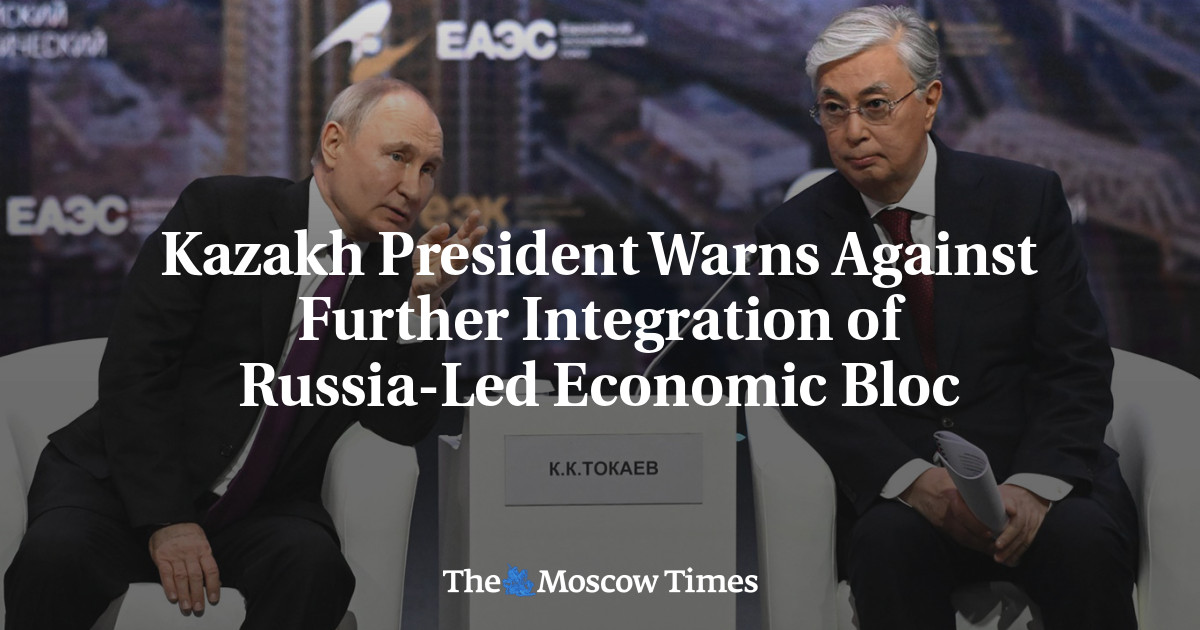
Kazakhstan’s president on Thursday criticized the Russia-led Eurasian Economic Union (EAEU) and appeared to caution against political integration between its members.
Kazakhstan, an oil-rich state and traditionally been Moscow’s closest ally in Central Asia, has been shaken by the invasion of Ukraine that sparked fears about Russia’s geopolitical ambitions.
Speaking at a plenary session of the EAEU in Moscow, President Kassym-Jomart Tokayev said Kazakhstan sees the union as an exclusively economic bloc.
“This is precisely what is stipulated in the 2015 treaty,” Tokayev said, addressing his Russian counterpart Vladimir Putin, who appeared alongside him on stage.
Any other areas of integration should only be considered “through the prism of the economy,” he said.
At the same time, Tokayev said, economic integration within the EAEU was in a “delicate spot,” with the union effectively divided into two parts.
“We have a Union State in the EAEU,” he said, referring to Russia and Belarus. “The creation of a state according to the formula ‘Two countries, one state,’ with a single political, legal, military, economic, monetary, cultural and humanitarian space, with a single union government and a single union parliament.”
“I apologize, but even nuclear weapons are one for two now,” Tokayev said, referring to Russia’s recent deployment of nuclear weapons in neighboring Belarus.
The countries in the second part — Kazakhstan, Kyrgyzstan and Armenia — share a different level of integration, he said.
“We have to deal with this reality. How will we work in these conditions? This is a conceptual issue. We need, I think, to discuss this problem at this economic forum,” he said.
Tokayev then said that economic integration within the EAEU is taking place in contradiction to the bloc’s founding agreements and goals.
In 2022, Russia repeatedly suspended the transit of Kazakh oil through its terminal in Novorossiysk, which compelled Kazakh authorities to seek alternative routes.
In the first quarter of 2023, Kazakh oil exports bypassing Russia through the Trans-Caspian sea route increased sixfold, reaching 163,400 tons.
Kazakh officials have reportedly grown increasingly wary of the Kremlin’s growing ambitions in the former Soviet space following its military offensive against Ukraine.
Kazakhstan has also moved closer toward countries like the United States, China and NATO member Turkey since the invasion of Ukraine.
Tokayev reportedly upset the Kremlin in June 2022 when, speaking alongside Putin at an economic forum in St. Petersburg, he rejected Russian calls to recognize the sovereignty of eastern Ukraine’s pro-Moscow separatists.
He also vowed to ensure the safety of Russians fleeing their country’s military mobilization for the war.